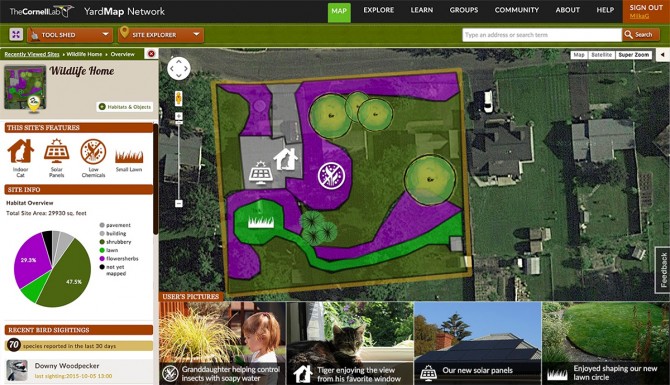An outdoor cat can damage your sustainability cred
By David Nutt
If you install solar panels on your roof and avoid dousing your lawn with chemicals and pesticides, your online peers may consider you to be environmentally friendly. But this street cred can all be erased if you let your cat roam around outdoors.
A new study shows that bird lovers who allow their pet cats out of the house are judged to be less concerned about the environment by other members of the birder community on social media, even if the property owner is otherwise employing all of the same sustainable practices as those keeping cats indoors. The study, “Group norm violations in an online environmental social network: Effects on impression formation and intergroup judgments,” was published in the November 2017 issue of Group Processes & Intergroup Relations.
“We thought this was a very interesting opportunity to study group norm violations,” said Hwanseok Song, a fifth-year doctoral student in the field of communication and the paper’s lead author. “What happens within this community when they see one of their members violate an important group norm? Do people notice cues that a member within their community is letting their cat outdoors? Do these people who notice those cues actually use that information to make judgments on that group-norm violator, not only absorbing what that person does about cats but also incorrectly downgrading the other sustainability commitments of that person?”
To explore these questions, Song and his collaborators used Habitat Network (originally named yardmap.org), a socially networked mapping application run by the Cornell Lab of Ornithology and The Nature Conservancy. The app allows users to create and share virtual maps of their properties that highlight their sustainability efforts, essentially a show-and-tell for good conservation practices. The researchers created two identical profiles of a pro-environmental property with a small lawn, low chemical usage and solar panels. The only difference between the profiles: One version had an icon and an image indicating an indoor pet cat and the other an outdoor pet cat. Outdoor cats are a divisive issue for many nature lovers because of the threat they pose to wildlife, particularly birds.
Habitat Network users were asked to rate each property owner’s level of sustainability. The researchers found that participants who didn’t own cats negatively judged property owners with an outdoor cat and even considered them significantly less likely to engage in a variety of pro-environmental behaviors, even though the maps made it clear these property owners had invested in solar power and used few chemicals on their lawns.
“Everything else in this map is pretty much signaling that this is a person already quite committed to sustainability causes. It usually takes a strong environmental commitment to install a solar panel. These findings say a lot about how we make judgments of others who are either violating, or complying with, these sometimes-parochial norms,” said Song.
“This study is a reminder of how easy it can be to jump to conclusions about other people’s behaviors on the basis of very little information,” added Poppy McLeod, professor of communication, who co-authored the paper.
The study’s findings have strong implications for online citizen-science projects that unite the sustainability community. While these projects can foster a sense of group solidarity and shared goals, unspoken biases and misperceptions could weaken progress in these projects.
“Sometimes it’s very hard to observe how we make judgments about others’ sustainable practices and how that shapes our perception about what kind of community we are in,” Song said. “We are socially trained to keep these judgments to ourselves, but that doesn’t mean those judgments don’t have any effect. If we start misperceiving what the norm is, our behaviors might be influenced in a way we don’t recognize ourselves.”
The paper was also co-authored by Jonathon Schuldt, assistant professor of communication; Rhiannon Crain, project leader of the Habitat Network; and Janis Dickinson, professor of citizen science at the Cornell Lab of Ornithology. The study was funded by grants from the National Science Foundation and the Atkinson Center for a Sustainable Future’s Academic Venture Fund. McLeod, Dickinson and Schuldt are Atkinson faculty fellows.
David Nutt is managing editor for the Atkinson Center for a Sustainable Future.
Media Contact
Get Cornell news delivered right to your inbox.
Subscribe

